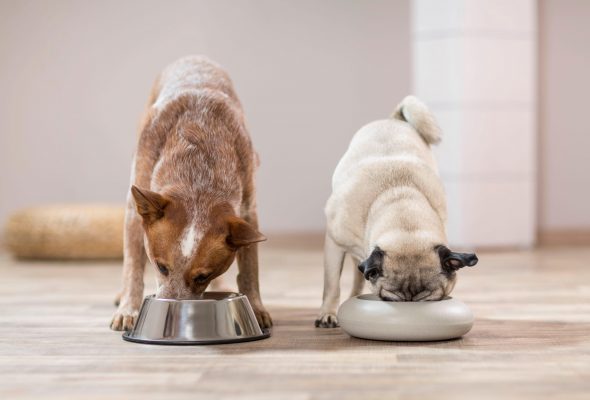Given that an estimated 49% of UK individuals own a pet, the majority of our pet food is made from leftover meat and fish, which is a staggering quantity. Due to the excessive land use, water consumption, and pollution generated during the manufacturing process, the manufacture of this pet food has a substantial negative impact on the environment, just like the production of human food based on meat. Even our pets might not benefit from it.
Giving our pets healthier, more natural foods has been more popular in recent years, with a demand for premium ingredients and high-grade meats.
Is it safe for my dog to eat insect based foods?
For many years, nations like Mexico, China, Thailand, and Ghana have recognized the advantages of consuming insects for both human and animal use. However, in other parts of the world, many consider it to be unpleasant and unneeded. But what if they’re mistaken?
Dog diets with an insect base do not only contain insects. They are combined with other nutritious components to provide a balanced diet. An insect-based meal frequently includes fresh veggies and natural oils, which provide a variety of flavor and goodness that combines with the protein to produce a well-rounded diet.
Has insect protein been approved by vets?
Indeed it has. According to several veterinarians, high-quality insect protein is superior to high-quality steak since it is packed with goodness and is free of additives and preservatives.
Insect protein as a substitute for traditional meat products and a means of providing a more sustainable source of pet food is something that the British Veterinary Association recognizes as important and having potential. They think it’s a great source of lean protein with many of advantages for our dogs’ long-term health.
What are the health benefits of insect protein?
- Although you might need some time to adjust to the notion of feeding your dogs food made from insects, you might be more receptive to the idea once you learn how many health benefits are associated with it.
- • Since insect protein is easier on the stomach, it improves digestion.
- • Makes stools more solid.
- • High nutrition; abundant in protein.
- • Encourages muscular strength.
- • Very delectable.
- • Enhances skin and coat health.
- • Supports the health of the brain and eyes by containing omega 3 and 6.
- • Rich in zinc and calcium for healthy bones.
- • Less calories and fat.
- • Vitamins and minerals are abundant in insects.
- High in antioxidants.
Why are insect based pet foods better for the environment?
Due to the fact that they require less room for breeding and less resources than animals raised for meat, insects have a smaller environmental impact. These are a few of the primary advantages for the environment: • Insects are more sustainable because they reproduce frequently with no negative effects on the ecosystem.
• They produce less CO2 gas and require a lot less land.
• Water usage in manufacturing and breeding has decreased.
• Less pollution is released during the periods of development and breeding.
• There are fewer strains used in agriculture.
• Products that are surplus to human needs can be fed to insects.
Are there any downsides of insect based pet foods?
The fact that the foods now available on the market are more expensive is one of the major disadvantages of an insect-based diet. This will undoubtedly alter as there are more options available and as there is an increase in demand for this kind of diet.
The public’s perception is the other drawback. Although we may be accustomed to giving our pets any type of meat, insects may seem unfamiliar and unusual. While people in other nations may occasionally appreciate them as delicacy, for the most part they are still regarded as strange. The decision will make more sense when people learn more about it, assisting in the eradication of any stigma.




